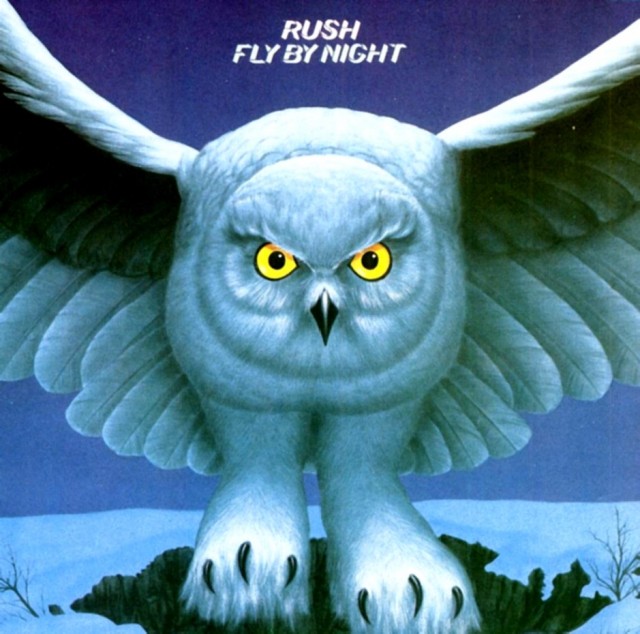
Fly By Night (1974)

1.Anthem
2.Best I Can
3.Beneath, Between & Behind
4.By-Tor and the Snow Dog
I. At the Tobes of Hades
II. Across the Styx
III. Of the Battle
IV. Epilogue
6.Making Memories
7.Rivendell
8.In The End
With the arrival of Neil Peart—drummer, lyricist, and latent philosopher—you could say that Rush properly began. The earlier version of the band, full of muscular riffs and adolescent urgency, was suddenly rendered obsolete. Peart’s presence necessitated reinvention. Geddy Lee and Alex Lifeson, to their credit, embraced it. One imagines their faces when Peart first handed them the lyric sheet to By-Tor and the Snow Dog. Whatever the reaction, it was the catalyst they were looking for. Lee and Lifeson had already begun inching toward complexity; their original drummer simply wasn’t inclined to follow.
So Fly by Night becomes the transitional record. The growing pains are evident, but the ambition is refreshing. They begin to shed the Zeppelinisms and stumble toward something more peculiar and distinctly their own.
Let’s begin with the success stories. Anthem opens the album with unrelenting confidence. Lifeson tears into the track as though making a formal declaration. Peart matches him blow for blow. Fly by Night, which leads off side two, is equally successful—its lyrical nostalgia balanced nicely with its melodic drive. These two tracks show us what the next chapter of Rush might look like: technically tighter, lyrically broader, but still tethered to hard rock sensibilities. Geddy’s voice—already divisive—sits high in the mix. It’s not everyone's cup of tea. Many simply tolerate it. But few would deny its unmistakable energy.
Then there is By-Tor and the Snow Dog. Clocking in at over eight minutes, it is both a high-concept triumph and an exercise in excess. Parts of it veer off into vaguely embarrassing cosmic explorations, but the sheer audacity of the thing keeps it afloat. It’s also an important marker: the band was no longer content to write just songs—they wanted to write epics. Fans have cherished it ever since, and not without reason.
The album’s most overlooked track is In the End. Nestled at the close of side two, it showcases a softer, more reflective Rush—but crucially, one that doesn’t abandon their identity. There’s a restraint here, a sense of musical storytelling, that hints at what the band would achieve with greater finesse later on.
But there are, of course, missteps. Rivendell is the most obvious offender. An acoustic dalliance into Tolkien territory, it is all misty glens and whispery intentions. Geddy croons delicately over soft chords, but the whole thing comes off like a discarded Yes demo. It's not awful, but it is deeply forgettable—and more importantly, unnecessary. They would never attempt anything quite so precious again, and that is probably for the best.
Elsewhere, Best I Can and Making Memories sound like leftover sketches from their debut—attempts to recapture a simpler sound now outgrown. Peart, to his credit, seems to be holding back, unsure whether to play it straight or assert his newfound virtuosity. The results are passable but uninspired.
In total, Fly by Night is an album caught between worlds. It is not entirely sure of its identity, but it is undeniably striving. For a band this young, and already attempting to redefine itself after just one release, it is a bold effort. History would show that they had made the right decisions—even if the execution would take a few more albums to fully realize.
Go back to the main page
Go To Next Review